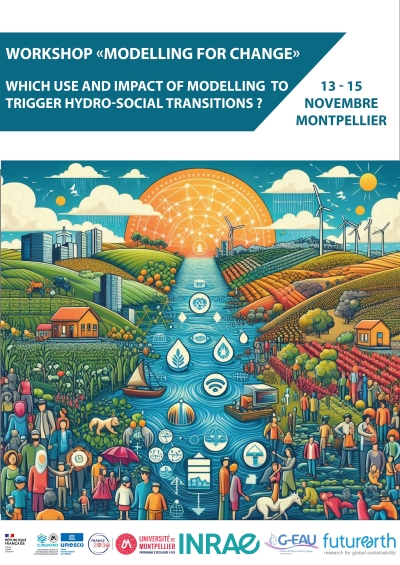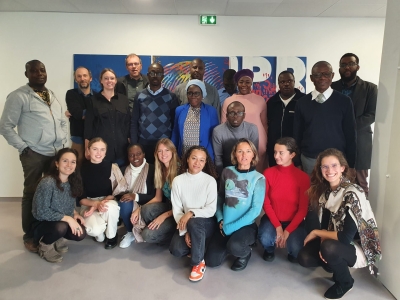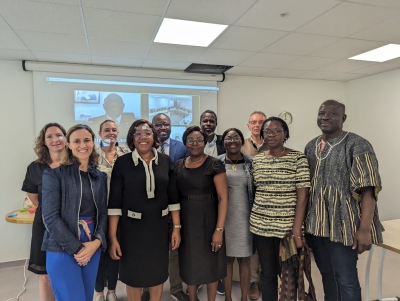

The Centre is organising high-level workshops to support the emergence of an international network spearheaded by Montpellier. This action aims to set up a series of workshops on targeted themes and aimed at experts. These workshops will enable the research work of the ICIREWARD network's scientific community to be promoted. The progressive construction of a series of thematic meetings on water in Montpellier is supported by a leading international network in order to make Montpellier the epicentre of a multidisciplinary academic network on water.
Modelling for change: which use and impact of modelling to trigger hydro-social transitions?
13-15 November 2024 at Hydropolis Lavalette, Montpellier, France
An international joint training workshop where scientists and public stakeholders can mutually learn and co-design new modeling procedures to foster adaptation in hydro-social systems.
Summary: For hydro-social systems, most modeling and model-based policy support processes follow a classical protocol where models are built and ran “in silico”, by scientists or experts who compute results to be communicated through scientific papers or policy briefs. Whereas some are commonly used for daily operations or tactical management (weather and hydrology forecast, water allocation, energy market dynamic), their transformative impact on structures and functionings in the long term is more questionable. The interaction patterns between the scientists, the policy makers and all other “land & water” stakeholders, including end users, when they build and use models and their outcomes, is the core issue here: who steers this design and use? With which rationale? What are the expectations from the various groups? Which alternatives exist for choosing the scope, for the modeling process itself, for allocating the roles, for integrating the results in the policies and actions? Which formalisms are the most suitable? However, for policy makers and other public stakeholders, their relation with modeling and models, how they can participate in their construct, use and evaluation, is a non-issue. Between Science, Policy and Society, we must reassess and share some new modeling pathways for the urgently required transitions.
Practical information: This workshop will be held in English and French, with part-time translation. 3 types of contents are proposed:
This workshop has the following Participation fees The following registration fees cover the direct organization costs including 3 lunches and the cocktail, plus specific editing costs.
| REGISTRATIONS | FEES (€ excl. VAT) |
| PhD students on fellowship and travel support if selected after due application (contact Nils FERRAND) | 20€ |
| Researchers belonging to Université de Montpellier members, UNESCO, INRAE & INRIA staff and FutureEarth staff members | 0€ |
| PhD student | 50€ |
| Other students (MSc, BSc) or youth active in NGOs after selection | 20€ |
| General registration for researchers | 100€ |
| NGOs representatives, SMEs (< 20 persons) staff, small size public organizations (municipalities, agencies) | 100€ |
| Other: big private companies, big public institutions | 200€ |

Building Inter/Transdisciplinarity in the Field of Water in Urban Areas of West Africa
The ActNAO project aims to update hydrological standards in West Africa to improve the design of hydraulic structures. In collaboration with the UNESCO ICIREWARD Center, ActNAO organizes workshops to promote interdisciplinarity and research on Gender.
These workshops have two main objectives:
These meetings will explore interdisciplinary approaches and strengthen scientific cooperation on water issues.

Date : October 2023
In the world, nearly 2 billion people live in areas where water management is inadequate, disproportionately affecting women who are responsible for water collection in 80% of households without access to safe drinking water at home. Recognizing these challenges, UNESCO has established a global network of UNESCO Chairs dedicated to water and gender.
Reaffirming this commitment, the ICIREWARD Center hosted a workshop in Montpellier bringing together these Chairs to enhance collaborations and explore new initiatives aimed at addressing the complex challenges related to water and gender. The session highlighted contributions from:
This gathering laid the groundwork for future projects aimed at equitable access to water and increased participation of women in decisions related to its management.
